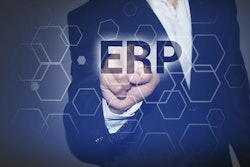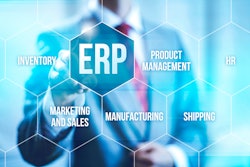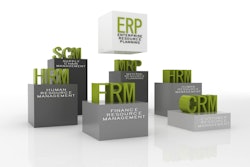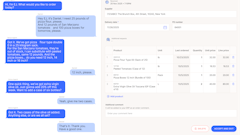
ERP analyst firm Panorama Consulting predicted that in 2016 there will be an increase in ERP adoption among small to mid-sized organizations as new cloud-based Software as a Service (SaaS) and mobile ERP applications became more accessible. ERP software is transforming supply chains across industries, and as mobile and cloud-based ERP solutions become pervasive they become powerful tools that drive competitiveness by streamlining processes, improving efficiencies, reducing waste and empowering employees to be more productive. ERP software can provide business benefits such as boosting efficiency or assisting with forecasting and planning through to providing essential traceability data and managing quality control requirements. Some of the ways in which a modern ERP solution can provide significant efficiency benefits help business compete more effectively, are:
Paperless Operation And Data Driven Decision Making - ERP solutions facilitate the elimination of paper-based processes across all areas of the food business from raw materials intake and inventory management to quality control and traceability. Electronic data collection eliminates the need for time-consuming and error-prone manual data collection and input.
Efficient Quality Control Processes & Labeling Accuracy - A customer’s quality criteria and labeling requirements are stored electronically within the ERP system and automatically applied during production and dispatch.
Informed Demand Planning - Being able to accurately forecast how much demand there will be for a certain product at a certain time of the year is critical. ERP solutions use historical production data and EDI order information to forecast demand and aid planning.
Mobile ERP - Mobile ERP applications can facilitate many processes, which need to take place away from the main place of operation. These can include field agronomy tests, farming and crop information, hazard and critical control point analysis testing, quality control, raw materials intake, traceability and tracking information, safety checks, health and safety inspections, to name a few.
However, to fully realize these benefits, any organization about to embark on an ERP selection and deployment process must carefully match its immediate and long-term business needs with the correct ERP solution, and meticulously plan and prepare for the implementation process.
The integration of ERP software involves all aspects of your business, it is imperative to find software which is suited to the requirements and goals of your business, both now and into the future.
What should you consider when thinking about ERP implementation?
Is the software suited to the needs of your business?
There are many ERP solutions on the market, all with their strengths, weaknesses, and areas of expertise. There are pros and cons to both customized, non-customized and industry-specific ERP deployments.
Horizontally focused ERP vendors can offer a solution that delivers a breadth of general functionality, such as manufacturing management, sales and purchasing, or warehousing. These can be deployed out of the box, with only personalization changes such as company logos, etc. Companies operating in niche or vertical industry environments, such as the food manufacturing, logistics or fresh food industry, will need to have this base software customized to meet their industry-specific or unique operational requirements.
In a vertical industry environment, it makes much more sense to choose a vertically focused ERP vendor. A vertically focused ERP solution should already include the niche industry functional and process requirements straight out of the box. This means that any industry-specific customization will be greatly minimized, leading to a smoother, quicker and more cost-effective implementation, and faster return on investment.
Assign ownership for the integration of ERP software in your business
Put someone in a position of accountability for the successful rollout of ERP software in your business. Without assigning responsibility for ERP to anyone, you run the risk of implementation becoming rudderless – a situation which can easily transform into delays and disillusionment.
Establish clear project goals
You must have clear, measurable goals from the outset of the ERP project in order to assess the effectiveness and success of any ERP implementation. You should carefully consider what it is that you want the implementation of ERP software to achieve for your business, and have realistic expectations.
Involve users from the start
Implementing ERP software will affect everyone in your business, not just management or IT. A new ERP solution will introduce new or different processes and ways of working. Not everyone is open and comfortable with change, some change management will be required. It is important to that ensure all users know why the ERP software is being implemented, what benefits it will bring to the business and what that will mean to their day-to-day job role.
In summary, the key things to consider before you start on an ERP implementation journey are: assign ownership for the implementation project, ensure a realistic implementation plan, clearly define the goals and priorities of the ERP implementation, quantify and prioritize expected business results and consider any organizational change management.
Overall, ERP projects will be more successful when they are treated as a “Business Transformation” project and the most successful projects enjoy management team support, driven from the highest level.



















